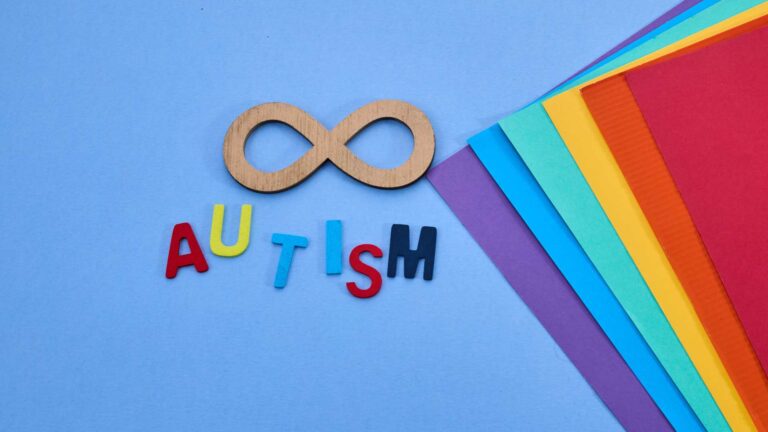The prevalence of autism spectrum disorder (ASD) has increased to approximately one in every 36 children eight years old or younger in the United States. For those who have only recently discovered their child has autism, you should know that Applied Behavior Analysis (or ABA) therapy has proven to help improve learning, communication, and social skills for kids diagnosed with ASD. But what is ABA exactly?
ABA Centers of Tennessee wants you to make an informed decision about your child’s course of care. We believe in ABA to such a degree that we’ve tied it directly to our brand. Why? Because ABA therapy is one of the most accepted and scientifically proven therapies for children with autism and because it works.
In ABA therapy, a qualified professional observes behaviors before developing a plan and working directly with the child or person, using their skills to accomplish goals and teach new habits. Admittedly, when developing an autism care plan for your child, you should consider multiple therapeutic interventions, as each intervention can vary based on a child’s age. Their specific challenges will determine the best course of action.
However, for this introduction, we will focus on ABA therapy programs, the Board Certified Behavior Analysts (BCBAs) who design them, and the Registered Behavior Technicians (RBTs) who conduct them. Both positions are governed and licensed by the Behavior Analyst Certification Board (or BACB).
What does a BCBA do?
The Board Certified Behavior Analyst conducts assessments and uses the results to craft a custom therapy plan, assess session results, and modify treatment plans to meet client goals. BCBAs have a master’s degree in Applied Behavior Analysis, plus they complete a comprehensive internship under qualified supervision. The certification exam is challenging, with only an average 50% pass rate.
What does an RBT do?
A Registered Behavioral Technician spends many hours with clients in therapy while supervised by a BCBA. These ABA technicians implement the treatment and behavior plans developed by the BCBA.
What does ABA Therapy do?
ABA techniques help your child accomplish personal goals, such as:
- Improve language and communication skills
- Decrease behavioral challenges, including aggression, self-injury, tantrums, or property destruction
- Increase adaptive skills, social skills, attention, and independence
BCBAs help parents and RBTs better understand their kids by helping to determine how their different environments affect their behaviors. You gain a better understanding of your child’s behaviors while your child learns to:
- Thrive at home, in school, within a clinic and in community settings
- Learn how to functionally ask for what they want
- More effectively communicate with others
- Improve personal connections with people
- Reduce self-harming, aggressive, or other maladaptive behavior
How does ABA therapy work?
Dr. Stephen Shore, an autism expert, has been quoted as saying, “If you’ve met one individual with autism, you’ve met one individual with autism.” This truism is precisely why ABA therapy is different for every client, as it involves analyzing individual behavior and developing a plan specific to that behavior. ABA therapy involves multiple steps that are tailored to your child’s needs.
Consulting and Assessment – In the beginning, you’ll sit down with a BCBA for a consultation called the functional behavior assessment (FBA). You can discuss your child’s strengths and weaknesses during this appointment.
Creating a Formal Plan – Once a BCBA completes the assessment, they craft a customized plan for your child, which considers your child’s unique needs and goals as defined by the family. By analyzing the data collected through observations, the BCBA determines which approaches will likely be most beneficial in addressing maladaptive behaviors and building skill repertoires. It will be important to involve the people in your child’s life, getting everyone on the same page to ensure your child’s success moving forward. RBTs can work with your child in environments such as school, the playground, the grocery store, and more, so they can observe how your child responds to a new daily schedule.
Positive Reinforcement – One of ABA therapies’ main strategies is positive reinforcement to teach the individual what behaviors they want to utilize when challenges arise. In the case of academic goals, positive reinforcement rewards correct answers and encourages them to continue to same behaviors in the future. BCBAs identify a goal behavior. Each time your child demonstrates that behavior, they receive a reward based on their preferences, such as:
- Toys
- Books
- Video games
- Access to favorite activities
- Praise
Exploring your child’s “A-B-Cs” can help an analyst determine why certain behaviors occur. The ABCs of treatment consist of the following:
- A – Antecedent (what occurs right before the target behavior)
- B – Behavior (the activity to address)
- C – Consequence (what happens after)
Common antecedents include:
- Physical cues, such as objects or sounds
- Verbal cues, such as requests or commands
- Environmental cues, such as another person’s interactions
Once the ABA team identifies why a behavior occurs, they can determine how different consequences affect it. Your child can practice replacing unwanted behaviors with more positive alternatives and receive a reward for the change.
Caregiver Training – Whichever services you decide for your child, quality ABA therapy includes parent/caregiver training. The best way to generalize skills is to get involved in your child’s treatment. Family involvement is essential for successful therapy, and both the BCBAs and RBTs are there to help you find new ways to help your child through their program. Entering a child into ABA therapy can be challenging for parents who may not know how to duplicate the skills the kids learn in ABA therapy at home. The more you can absorb the basics of ABA therapy as your specialists work with your child, the more you will learn how to encourage new skills and handle challenging behavior. Knowing which forms of reinforcement can harm your child’s progress is equally important so you know what to avoid.
Evaluations – Your BCBA will determine which interventions are working based on ongoing data from observations throughout your child’s ABA therapy. This way changes can be made to your child’s treatment plan, adjusting their approach as they determine which techniques work best for your child.
Are there other uses for ABA therapy?
While introduced as a treatment for autism, ABA therapy is viable to help patients with other developmental issues, such as:
- Cognitive impairment (often due to a brain injury)
- Borderline personality disorder
- Anger or mood issues
- Substance dependency or misuse
- Eating disorders
- Panic disorder
- Phobias
- OCD
How much does ABA therapy cost?
Due to the custom nature of ABA planning, it isn’t easy to quote a specific price for the therapy. Fortunately, various government assistance programs and private grants are available, plus most states have laws requiring insurance companies to provide coverage for autism treatment. Ultimately, the cost is determined by different circumstances, such as:
- Frequency of treatment sessions needed
- Type of ABA interventions used
- Client’s needs and goals
- Services offered
How do you find a therapist you can trust?
Finding a qualified behavior analyst before starting ABA therapy for your child is a tremendous contributor toward long-term success. Questions parents and caregivers should ask while interviewing potential ABA therapists include:
- What training did you receive, and how recently?
- How do you envision meeting my child’s specific needs?
- Do you have techniques I can use at home or after sessions to help my child?
- How many hours of therapy do you recommend each week?
- How many people will help my child as part of your team?
- Can I sit in on my child’s ABA sessions?
- How do you counter negative behaviors?
First, ensure the therapist has extensive, specialized ABA training. If the therapist doesn’t have Behavior Analyst Certification Board (BACB) certification, ask how recently they completed their training and where they are in the certification process.
Look for someone with experience and continued training on ABA interventions. Are they using the most up-to-date techniques? They may depend on outdated knowledge if they do not prioritize continued learning.
ABA Therapy at ABA Centers of Tennessee
At ABA Centers of Tennessee, we specialize in helping families create the brightest future possible for their children. And with early intervention, you can equip your child with the skills they need in real-life situations.
We are here to help kids, teens, and adults grow, learn, and lead fulfilling lives. We have experience with all forms of autism across the spectrum and with clients of all ages. If you have a loved one recently diagnosed with autism spectrum disorder, we can help.
Contact us today for a free consultation, and feel free to share this and other articles with parents you know who could use an experienced hand.






